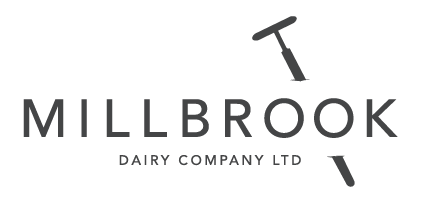State of the Nation
Here, Millbrook Dairy’s co-founder, Kevin Beer, takes a look at how has the dairy sector coped with the effects of the pandemic?
The last twelve months have been an extraordinary journey …
At Millbrook Dairy, we provide a service across import, export, whilst supporting branded propositions across cheddar and butter primarily. However, 2020 was an exceptional year of adversity for many – a year that could never have been predicted with hard decisions being taken along the way.
What we saw is significant growth in demand for cheese and butter, not just in multiple retail, but also through independent convenience stores as consumers turned to their local communities in order to secure supplies and have ‘shopped local’ throughout lockdown, with research showing that some 32% of consumers say they will continue to support their local C-stores post Covid. There has been much in the media around fair distribution of products to ensure this powerful network of localised shops remains able to meet demand.
The Foodservice market has proven to be an interesting dynamic this year, initially losing volume as Foodservice channels locked down and restaurants, schools and universities closed, with workplaces left empty. Much of that lost Foodservice volume has now been repurposed through switching products into branded and value-add propositions (and sold into retail), which has certainly helped suppliers. But, making that switch has also led to a tightening of stock holding, especially now that schools have turned the lights back on and workplaces have opened up for business.
The increase in UK retail sales seen this year across both own-label and branded dairy offerings are mostly of British origin. However, this unplanned volume-pull on British manufacturers has left the UK short of stock. To some degree, this has been mitigated by younger stock which we have seen come onto the market.
This younger stock is still good quality - as ‘starter culture technology’ and production processes have become more sophisticated (and as favour profiles change in line with consumer demand), the length of time that certain cheeses e.g. cheddar, needs to be laid down has shortened. What historically took two years to create an extra mature or vintage cheddar can now be achieved in less than a year and this has certainly helped meet the higher demand for British products as younger stock can be allocated for sale. This ‘reducing’ in age profile will also potentially give financial benefits to those producers through lower stock holding, and ultimately though reduced working capital.
One of the aspects that made a huge difference to us at the Millbrook Dairy Company has been the ability for us to take decisions fast, and this business agility has held us in strong stead over what has been an a-typical year’s trading. It is a real advantage to be able to flex to rapidly changing market conditions on a day-by-day basis without losing any of the innovation or value add that customers expect and deserve.
There is no question that Covid has impacted on the Dairy Industry in many ways. In the last year suppliers focused on the immediacy of current demand but we are now seeing good levels of sales crystalising for delivery over the coming weeks and, as the hospitality industry turns its lights back on, we hope this will increase further.
The market fundamentals remain firm, with stock tight with cream, butter and cheese prices all rising globally. Here in the UK supply pressure is compounded by a reluctance to export products from the EU to UK. We can only think things will remain firm as vaccines enable the UK to ease lockdown restrictions and traditional food service and wholesale routes to market come back on line and refill their supply chains.
